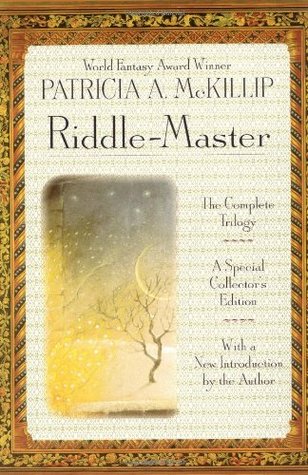 The City in the Lake is magical and evocative, full of the sort of imagery that resonates with unstated meaning. But it's also grounded by real, practical characters, who have grown up with this magic and understand (to greater and lesser extents) how it works. This book spills over with enchantment but it isn't about the magic. Yes, Timou learns how to be a mage, but it's not really a coming-into-one's-magic story, since she masters it fairly early on. It's a quest of sorts, to find a missing prince, but the finding of the prince happens fairly easily, too. It's more of a finding-out-who-you-are-when-it-comes-down-to-the-wire story. It's about the choices the characters make, and how they face the consequences of those choices. I think those are my favourite kind of stories.
The City in the Lake is magical and evocative, full of the sort of imagery that resonates with unstated meaning. But it's also grounded by real, practical characters, who have grown up with this magic and understand (to greater and lesser extents) how it works. This book spills over with enchantment but it isn't about the magic. Yes, Timou learns how to be a mage, but it's not really a coming-into-one's-magic story, since she masters it fairly early on. It's a quest of sorts, to find a missing prince, but the finding of the prince happens fairly easily, too. It's more of a finding-out-who-you-are-when-it-comes-down-to-the-wire story. It's about the choices the characters make, and how they face the consequences of those choices. I think those are my favourite kind of stories.My favourite character is actually the Bastard. He's complex and ambiguous and has the most difficult choices to make, and I think he's as much a main character as Timou. My second favourite character is Jonas. He doesn't get as much POV time as the other two, but he's so patient and unassuming and I think he makes the biggest sacrifice. Timou is dogged and smart and doesn't let crushing grief or disappointment get in the way of saving the kingdom. Perhaps I connected the least with her because of her ability to shut away her emotions, which was essential to letting her use her powers against the sorceress. I did like the way her magic worked.
The romance is understated but very sweet. Relationships of all kinds are explored: siblings, parent-child, friendship. Trust, loyalty. The stuff that really matters.
Not everything is explained. We learn enough about how the kingdom works to understand the peril it's in, but I could have spent a lot more time reading about the City, and the forest, and mirrors, and the tigers on the bridge, and the difference between magery and sorcery, and . . . . I remember this being a complaint of mine about The Floating Islands. But actually it's a strength, that her books are only as long as they need to be, and they leave you feeling as though you've only brushed the surface of the world and there's so much more to be discovered.
Blueberry cupcakes with lemon cream cheese icing.





